Table of Contents
- Introduction: Why You Need a Ground Mustard Replacement
- What Is Ground Mustard?
- Why Replace Ground Mustard?
- The Best Ground Mustard Replacements
- Buying Guide: How to Choose the Right Substitute
- Conclusion: Keep Your Dishes Flavorful Without the Mustard
- Frequently Asked Questions About Ground Mustard Replacements
Introduction: Why You Need a Ground Mustard Replacement
Have you ever reached for that jar of ground mustard and found it empty? Or maybe you're following a diet that restricts certain ingredients, or you simply want to experiment with new flavors. No matter the reason, knowing how to replace ground mustard can save your dish from becoming bland or unbalanced. In this article, we'll explore the best substitutes for ground mustard, why they work, and how to use them effectively.
Ground mustard is a staple in many kitchens, used in everything from sauces and dressings to marinades and spice blends. Its sharp, pungent flavor adds depth and complexity to dishes. But when you don't have it on hand, or you need an alternative, it's important to know what can step in without sacrificing flavor.
What Is Ground Mustard?
Ground mustard is made by grinding dried mustard seeds into a fine powder. It's often mixed with water, vinegar, or other liquids to form a paste, but the dry version is commonly used in cooking and baking. The flavor is bold, slightly bitter, and has a strong kick that lingers on the palate. This makes it ideal for adding heat and depth to recipes like barbecue sauce, aioli, or even homemade ketchup.
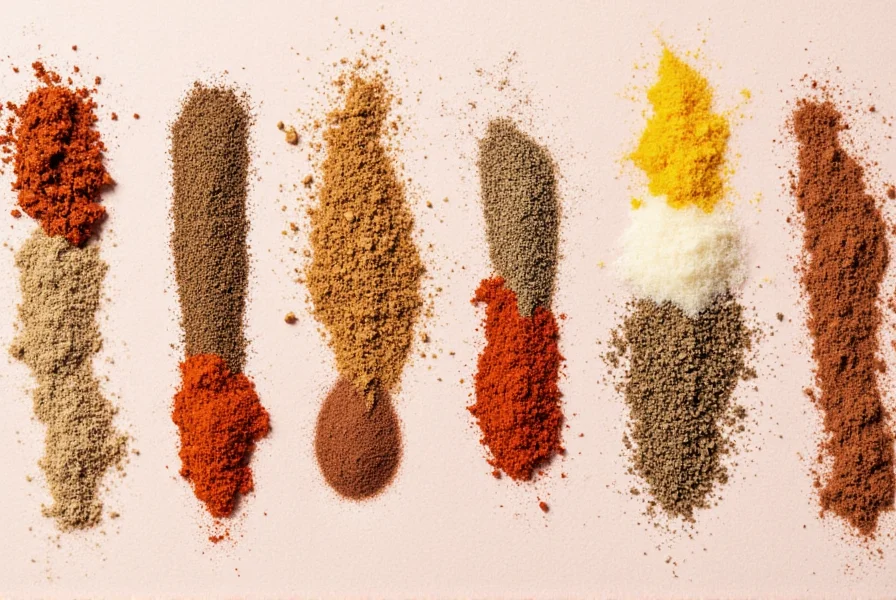
There are several types of mustard seeds, including yellow (also known as white), brown, and black. Each has a slightly different flavor profile, but when ground, they all produce a similar base for seasoning. The most common type used in ground mustard is yellow mustard seed.
Why Replace Ground Mustard?
There are many reasons to look for a ground mustard replacement:
- Allergies or dietary restrictions: Some people may be allergic to mustard or choose to avoid it for health reasons.
- Cooking without it: Maybe you're out of it, or you want to try a new recipe that doesn't call for it.
- Flavor variation: You might want to add more heat, acidity, or tanginess to a dish than ground mustard provides.
- Vegan or vegetarian diets: Some versions of ground mustard contain animal products, so a substitute might be necessary.
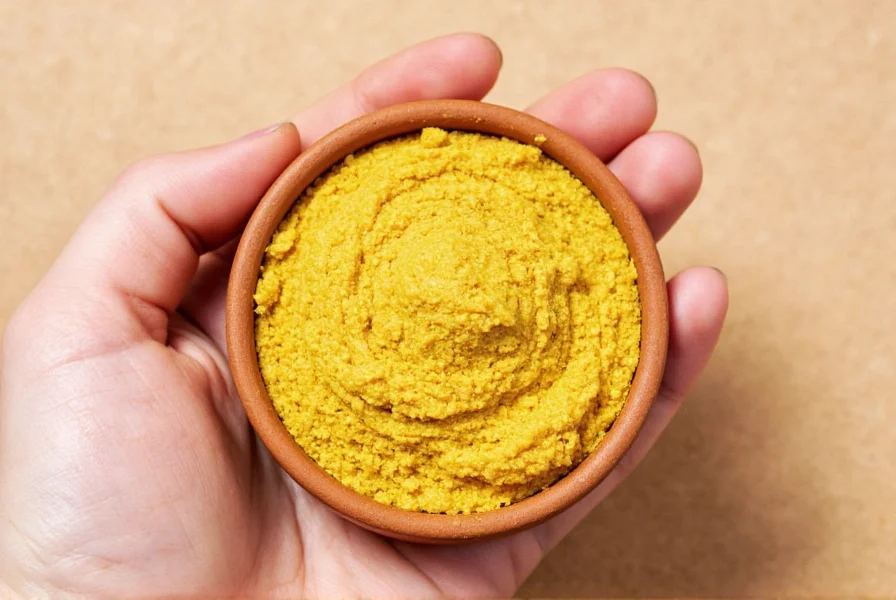
Whatever your reason, there are several excellent substitutes that can mimic the taste, texture, and function of ground mustard in your favorite recipes.
The Best Ground Mustard Replacements
Here are seven top alternatives that can fill in for ground mustard in your cooking:
1. Prepared Mustard
Prepared mustard is a ready-to-use condiment that contains ground mustard seeds, vinegar, and other seasonings. While it's not exactly the same as ground mustard, it can be used as a direct substitute in many recipes. Just keep in mind that it has a stronger, sharper flavor, so you may need to adjust the amount accordingly.
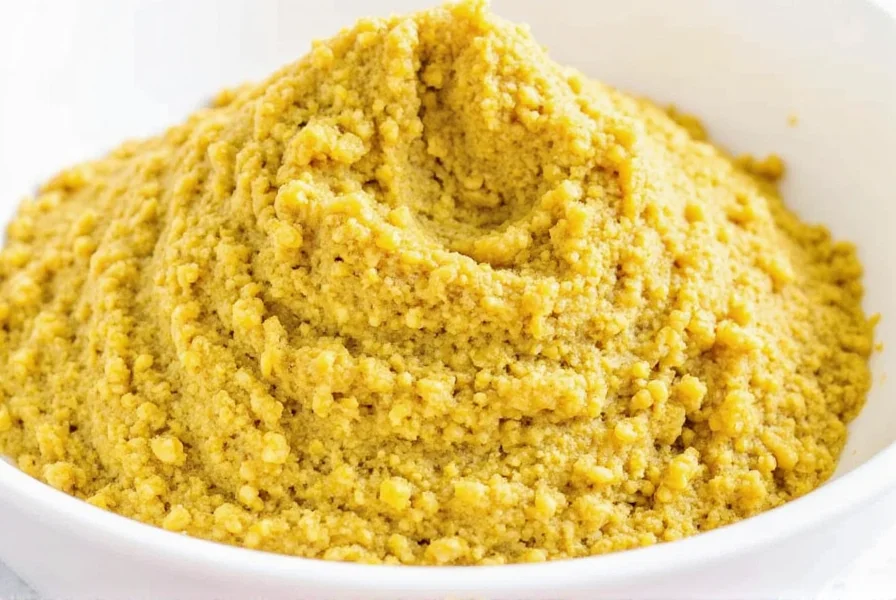
2. Horseradish
Horseradish is a root vegetable that has a strong, spicy flavor similar to mustard. It's often used in sauces and dips, and it can provide a nice kick to your dishes. When using horseradish as a substitute, start with a small amount and increase gradually—its heat can be overwhelming if you're not careful.
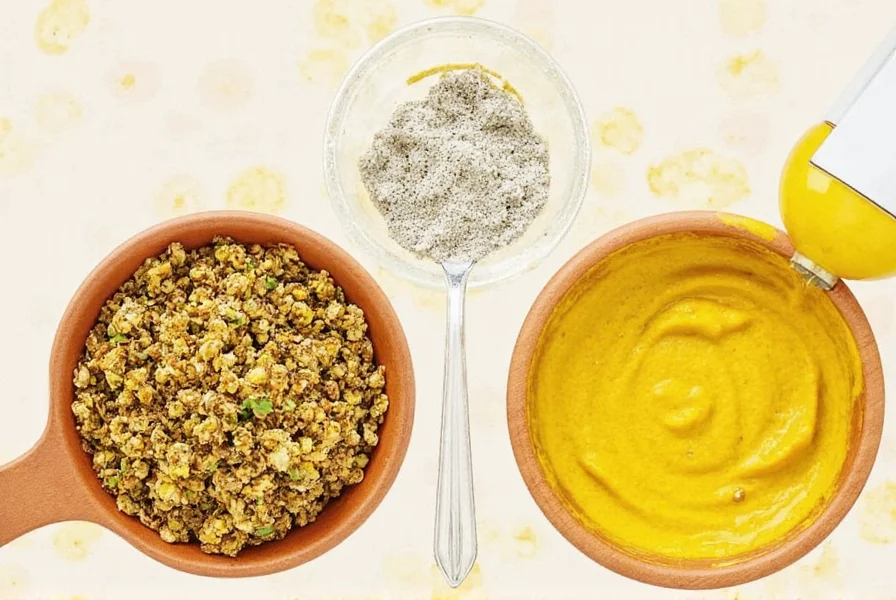
3. Wasabi
Wasabi is a Japanese plant with a sharp, spicy flavor that's often compared to mustard. It's milder than horseradish but still has a noticeable bite. If you want a more authentic Asian twist, wasabi is a great option. However, it can be expensive and hard to find in some areas.
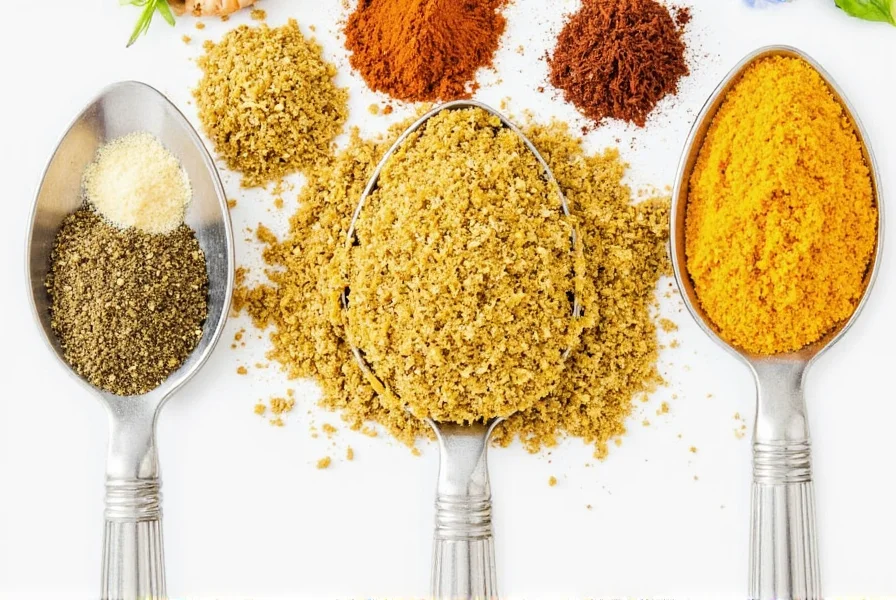
4. Cayenne Pepper
If you're looking for a spicy substitute, cayenne pepper can work well. It adds heat and a bit of tang, making it a good match for dishes that need a little extra kick. Use it sparingly, though—cayenne is much hotter than ground mustard.
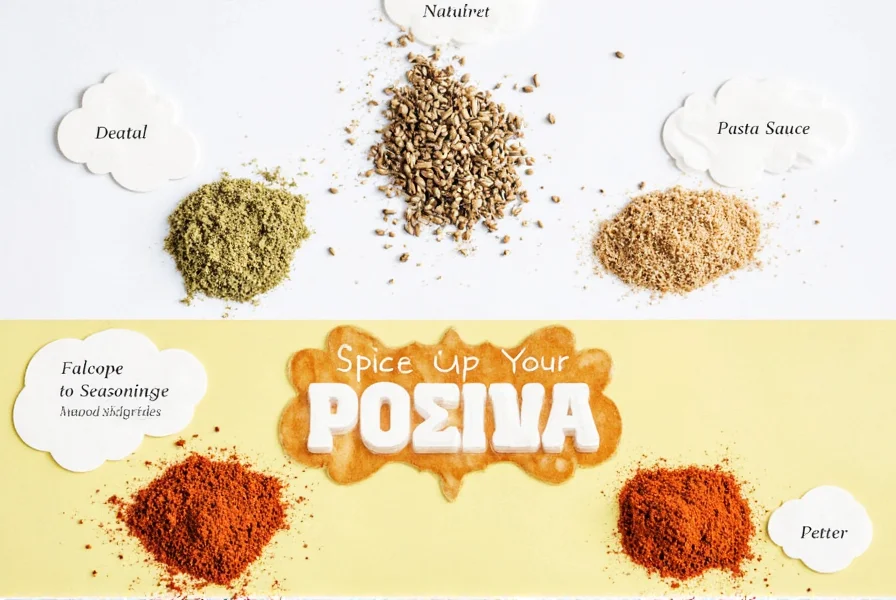
5. Dijon Mustard
Dijon mustard is a type of prepared mustard that uses white wine and mustard seeds. It has a more complex flavor than regular mustard and can be used as a direct substitute in many recipes. It's especially good in vinaigrettes, marinades, and sauces.
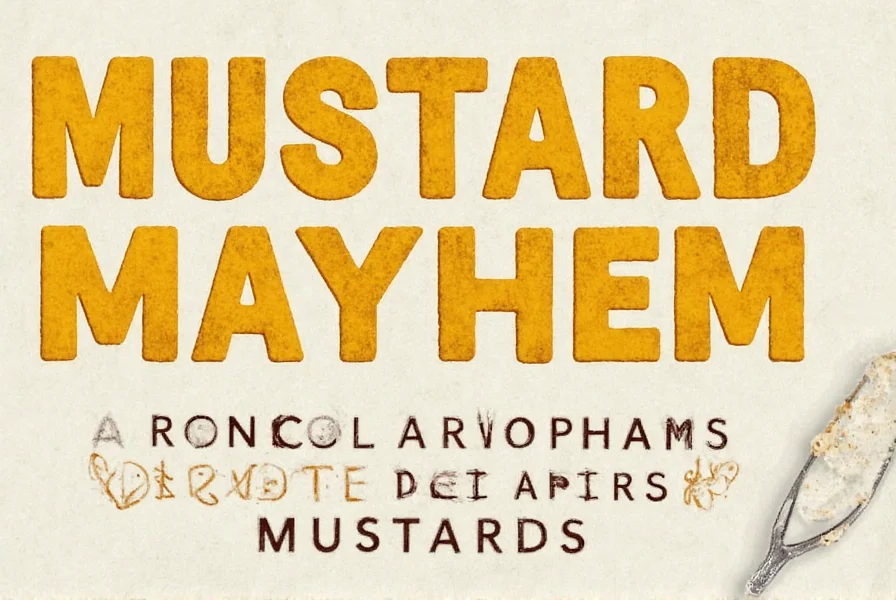
6. Yellow Mustard
Yellow mustard is another type of prepared mustard, but it's milder and sweeter than Dijon. It can be used in place of ground mustard in recipes where a lighter flavor is desired. It's also great for adding a tangy note to sandwiches, dressings, and dips.

7. Pickle Brine or Vinegar
If you need a quick fix and don't have any mustard on hand, a splash of pickle brine or vinegar can add acidity and a slight tang that mimics the brightness of mustard. This works best in dressings, marinades, and sauces where the primary goal is to add a bit of zing.
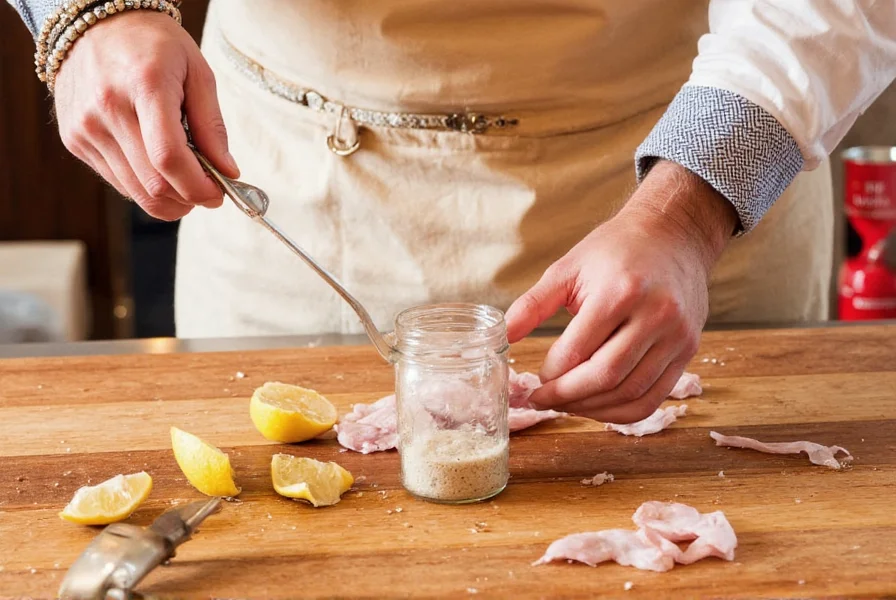
Each of these options has its own strengths and can be used depending on the specific dish you're making and the flavor profile you're aiming for.
Buying Guide: How to Choose the Right Substitute
When choosing a ground mustard replacement, consider the following factors:
- Flavor profile: Do you want something spicy, tangy, or sweet?
- Texture: Will you need a paste-like consistency or a dry powder?
- Use case: Are you using it in a sauce, dressing, marinade, or baked dish?
- Availability: How easy is it to find in your local grocery store?
Below is a comparison table to help you decide which substitute might be right for you:
| Substitute | Flavor | Heat Level | Best For |
|---|---|---|---|
| Prepared Mustard | Sharp, tangy | Moderate | Sauces, dressings, dips |
| Horseradish | Spicy, pungent | High | Sauces, dips, seafood |
| Wasabi | Spicy, fresh | Moderate | Asian dishes, sushi, dips |
| Cayenne Pepper | Hot, spicy | Very high | Spicy dishes, rubs, sauces |
| Dijon Mustard | Complex, tangy | Moderate | Marinades, vinaigrettes, sauces |
| Yellow Mustard | Mild, tangy | Low | Sandwiches, dressings, condiments |
| Pickle Brine/Vinegar | Tangy, acidic | None | Dressings, marinades, quick fixes |
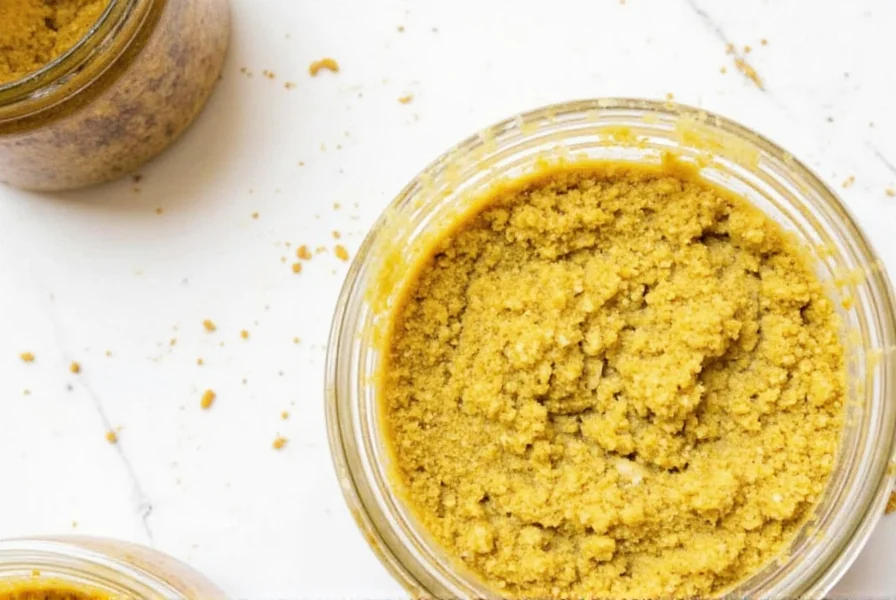
For example, if you're making a classic American-style potato salad, yellow mustard or prepared mustard would be the best choice. But if you're trying to make a spicy Asian-inspired dish, wasabi or horseradish could be more suitable.
Keep in mind that some of these substitutes may require adjustments in quantity or additional ingredients to achieve the right balance. Always taste as you go and adjust based on your personal preferences.
Conclusion: Keep Your Dishes Flavorful Without the Mustard
Ground mustard is a versatile and powerful ingredient, but it's not always available. Fortunately, there are plenty of excellent alternatives that can fill in the gap without compromising the flavor of your dish. Whether you prefer something spicy, tangy, or just a bit of acidity, there's a substitute that will work for you.
By understanding the unique characteristics of each ground mustard replacement, you can confidently experiment with new flavors and techniques in your cooking. So next time you find yourself without ground mustard, remember that the kitchen is full of possibilities—and your taste buds will thank you.
In summary, when you're looking for a ground mustard replacement, consider the flavor, heat level, and intended use of your dish. With the right substitute, you can still create delicious, well-balanced meals without missing a beat.
Frequently Asked Questions About Ground Mustard Replacements
What's the best substitute for ground mustard in recipes?
The best substitute depends on your specific recipe and flavor preferences. For most general cooking applications, prepared mustard or Dijon mustard works well as a direct substitute. If you need a dry substitute, a combination of turmeric, paprika, and a pinch of cayenne can mimic the flavor profile. For recipes where you primarily need the tanginess, vinegar or pickle brine can work in a pinch.
Can I use mustard powder instead of ground mustard?
Yes! Mustard powder and ground mustard are actually the same thing - these terms are used interchangeably. If your recipe calls for "ground mustard" and you have "mustard powder," they can be used equivalently without any conversion needed.
How do I substitute prepared mustard for ground mustard?
As a general rule, 1 teaspoon of ground mustard equals approximately 1 tablespoon of prepared mustard. However, since prepared mustard contains liquid (vinegar, water), you'll need to reduce other liquids in your recipe by about 1 teaspoon for each tablespoon of prepared mustard used. This substitution works particularly well in sauces, dressings, and marinades.
What's the difference between dry mustard and ground mustard?
There is no difference - dry mustard and ground mustard refer to the same product. Both terms describe mustard seeds that have been dried and ground into a fine powder. The different names are regional or historical variations, but they can be used interchangeably in recipes.
Can I make my own ground mustard substitute?
Absolutely! For a quick homemade substitute, mix 1 teaspoon turmeric, 1 teaspoon paprika, 1/4 teaspoon garlic powder, and a pinch of cayenne pepper. This combination mimics the color and approximate flavor profile of ground mustard. For a more authentic flavor, you can grind actual mustard seeds in a spice grinder, but note that freshly ground seeds will be more pungent than commercial ground mustard.
Will the substitute change the texture of my dish?
It depends on the substitute you choose. Liquid substitutes like prepared mustard or vinegar will add moisture, so you may need to adjust other liquid ingredients. Dry substitutes like spice blends won't affect texture significantly. Horseradish and wasabi can add slight thickness to sauces. When substituting, consider whether your recipe can accommodate the additional liquid or texture changes.
How much substitute should I use for 1 teaspoon of ground mustard?
General substitution ratios:
- Prepared mustard: 1 tablespoon
- Dijon mustard: 1 tablespoon
- Yellow mustard: 1 tablespoon
- Horseradish: 1-2 teaspoons (adjust to taste)
- Wasabi paste: 1 teaspoon
- Cayenne pepper: 1/8-1/4 teaspoon (use sparingly)
- Vinegar or pickle brine: 1 teaspoon
Are there any substitutes that work particularly well in baking?
For baking applications like cheese straws, pretzels, or certain breads where ground mustard is used, dry spice blends work best to maintain the proper dough consistency. A mixture of turmeric, paprika, and a touch of cayenne is ideal. If the recipe already contains liquid, you could use 1/2 teaspoon of prepared mustard per teaspoon of ground mustard called for, reducing other liquids slightly. Avoid watery substitutes in baking as they can throw off the moisture balance.










 浙公网安备
33010002000092号
浙公网安备
33010002000092号 浙B2-20120091-4
浙B2-20120091-4